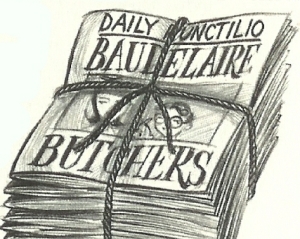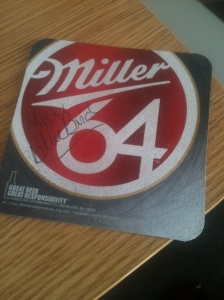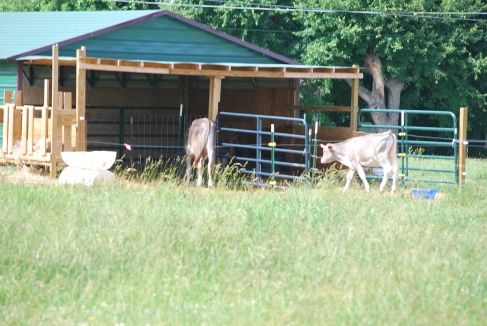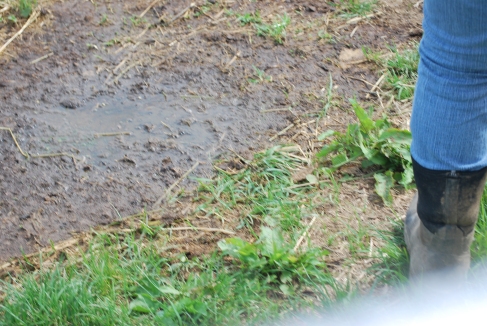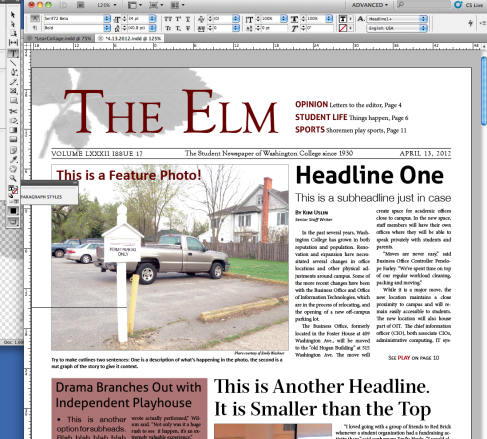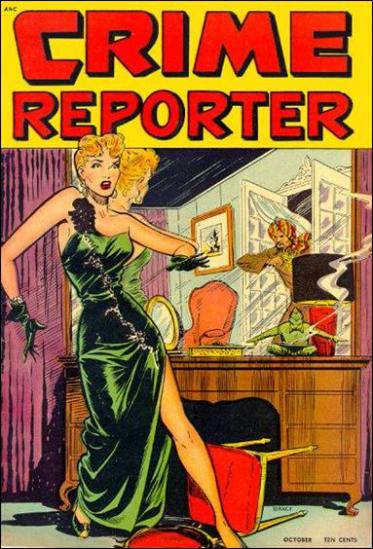I’m assigned plenty of busy work as part of my duties as the “lowly intern” as one of my coworkers likes to jokingly call me. My favorite of these sometimes mundane but necessary and intern-worthy assignments is compiling each week’s early files.
This newspaper dates back to pre-Civil War times, and we take full advantage of our history here in Chestertown. Each week, the newspaper runs clippings from old issues, dating from as far back as 150 years. So every Friday, I scour the towering bookshelves lining the hallway to the back room, pulling out enormous collections of yellowed newspapers. I start with the earliest, 1862, then work my way up, from 150 year ago to 75 years ago (the 100 year-old issues are in fragile enough condition that we can’t even open their book) to 50 to 25 to 10 years ago.
I’m particularly fond of browsing through the 1937 issues, both because of my personal fascination with the time period and the fascinating department store and film ads.
But as a belated Independence Day blog post, I’m focusing on the July 5, 1862 issue today. A few things to note about Civil War issues of this local newspaper: They are laden with quips toward the Confederacy:
A GOOD JOKE: The Richmond Examiner states that, as a result of the late battles, Confederate stocks rose from 93 to 97 cents–payable in Confederate note currency ! It would have been the same thing had they advanced to 197, for both are equally worthless, and a cart load of them would not command a dollar in hard money nowhere in the world outside of rebeldom!
– July 5, 1862
They insert non-political (and oftentimes racist, unfortunately) jokes randomly between news stories:
“Can you give me bills for a ten dollar gold piece?” asked a very pretty young lady of a young man named William, who was tending store.
“No, I cannot,” was the reply.
“Can you oblige me with a single Bill?” she asked.
“Well yes, I guess so–you see they call me Bill, and I’m single, and am entirely at your service.”
– July 5, 1862
And they are beautifully written. Even the most mundane of articles, like regular updates on the wheat crop, are composed in a delicate, almost poetic style. It’s a dramatic contrast to the clear, concise news writing journalists are trained in today. It makes the articles especially entertaining to read.
Some of the most eloquent write-ups are the obituaries. Today, I came across a death notice for a Civil War veteran, born and raised on the Chester River, and also an alumni of our very own Washington College. The first was published soon after his death:
Departed this life, in Memphis, Tenn., the first week in May last, Mr. BENJAMIN C. VICKERS, aged 26 years, and fourth son of George Vickers, Esq., of Chestertown.
The death of Mr. V. was caused by a wound received at the battle of Shiloh, in the first week in April. The deceased with in the battle of Belmont and escaped unhurt. He was formerly in a large grocery house in this city, an displayed much talent and tact at his calling.
He was educated at Washington College, possessed considerable talent, was intelligent, quick in his perceptions, and of indomitable perseverance. No obstacle was too great for him to surmount. He was courteous, kind, and of noble and generous impulse. He was an affectionate and dutiful son, kind brother and a true friend. His ear was every open to hear, and hand ever ready to relieve, where distress or charity presented their claims. Had he lived, he would have become prominent and successful in his vocation.
Although he lingered and suffered in a land of strangers, yet there the heart of sympathy was found, and the soft hand of friends to smooth his dying pillow. It is said he died in “hope of glorious resurrection.” His parents and relatives have sustained a heavy loss, and a sad bereavement, but may they be consoled “though he cannot come to them, they can go to him.” May he rest in peace, and although the affectionate hand of a mother may not be able to plant the flower at his grave, yet the consolation is, that he rests in peace, where he the cannon’s roar and the din of battle are not heard, and that in the morning of resurrection he shall rise, clothed in white, and in a new body be caught up to dwell forever with the Lord.
The second article went into a bit more detail about his last days:
From the Baltimore American of the 24th.
THE LATE BENJAMIN C. VICKERS. – We have already announced the decease of Mr. Benjamin C. Vickers, son of Gen. George Vickers, of this place, but were unable, at the time, to give any particulars respecting it. We have now the circumstances attending his death, which may prove interesting to a large and sorrowing circle of friends.
Mr. Vickers was at the battle of Shiloh, and seemed to have a presentiment that he would fall in that battle, for in his pocket was found a paper with his name and company written upon it, as also a request that if he fell in battle his father should be informed of it. He was wounded by a minie ball in the thigh near the joint, which broke the bone, and in its course upwards lacerated the integuments and muscles, and when extracted was found flattened to the size of a quarter dollar.
This was on the sixth of April. He was taken to Memphis, to the house of a relative of a friend, where he had every care and attention, and where he died on the third of May, in the twenty-sixth year of his age. Two weeks previous to his disease, and when it because apparent that his wound would prove fatal, he was married to Miss Houston, of Tennessee, niece of Gen. Sam. Houston, of Texas, to whom he was engaged previous to entering the army, and who devoted herself to him with that spirit and tenderness which belongs only to woman.
During his whole illness he was perfectly calm and resigned, and expressed the utmost confidence that he had made his peace with God. A few days before his death he partook of the Communion, and after having sent his remembrances to each of his family, and expressing a great desire to see his mother, and that his father sho9uld be informed that he was not afraid to die, he passed away calmly and peacefully, and almost without a struggle.
And thus passed away our young friend, whose death thus early was triumphant: By his noble and generous qualities he appears to have attracted a large circle of friends in his new home, who manifested a deep interest in his condition and contributed largely to his comforts him his sickness by their attention and sympathies; and as a soldier, his chivalrous bearing at the battle of Shiloh won for him the tribute due to a brave and gallant man; but all this is nau8ght compared to the ever-lasting source of consolation which should bear up his immediate family in their unexpected calamity. Amid the gloom and despondency surrounding them, they have a balm for the wounded sp9irit which must be ever present – their son “died without fear, and in the blessed hope of a joyful resurrection.”
My college is working on a veteran recognition project right now, the first official memorandum we’ve ever offered for the men and women who gave their service, and sometimes lives, to their country. I actually wrote an article on the endeavor last semester, so it was just my luck to run across an article on a Civil War alumni, and only two days after the Fourth of July at that.
I read and reread those two articles for about 15 minutes this morning, imagining what this Benjamin Vickers, who studied, laughed, drank, and learned on the very same campus where I live now, may have been like. It was a harsh reminder for me of the realism of war. Americans have become accustomed to seeing battle and bloodshed as a distant blip on their radar, yet another tragedy to litter news stations and papers. But in the 19th century, war was personal. George Vickers was a real father whose young son was lost to war, and his sorrow and pain were just as heavy as any mourning parents’ today.
This discovery was also a rejuvenating moment for me. As a journalist, I have a part to play in history, too. If it hadn’t been for the anonymous reporter who talked to this young man’s family, or the printer who placed all the individual stamps into the letterpress, Benjamin would be lost to history. If it hadn’t been for them, the 150th anniversary of his death would be forgotten, his name never forwarded to the Washington College alumni office to be listed on their veterans memorial website.
So I’m proud of many things today. I’m proud to be a Washington College student, earning a liberal arts education along the same paths and in the same buildings that once hosted hundreds of brave men and women who went on to serve their country. I’m proud to be a journalist, someone who can immortalize pain, triumph, and sacrifice, so stories can be found and retold again some day. And I’m proud to be an American.
So happy Fourth of July, readers, and let’s remember those who deserve it.
